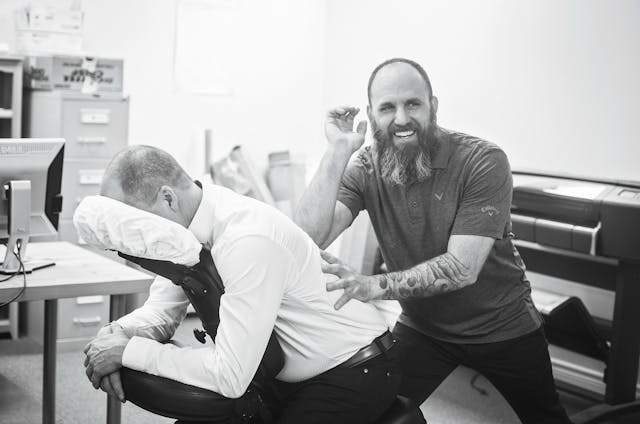11 Signs You May Need to Visit an Auto Accident Chiropractor

After being in a car accident, you might feel okay at first. But sometimes, pain or other problems show up later. This is when seeing an auto accident chiropractor can help you a lot.
These chiropractors specialize in treating auto accident injuries. They work to ease your pain and help your body heal properly. Many people don’t realize they need this kind of care until they start feeling worse.
That’s why it’s important to know the signs that tell you to visit an auto accident chiropractor. This way, you can get the right help early on. Keep reading.
1. Persistent Neck Pain
Persistent neck pain is a common sign that something might be wrong after a car crash. It’s your body’s way of telling you that it needs attention. Seeing a chiropractor can be a great step toward getting neck pain relief.
Sometimes, neck pain sticks around for a long time and makes everyday activities hard to do. It could mean your neck was hurt during the accident. A chiropractor can help fix this pain, so you feel better.
2. Sudden Headaches
An abrupt onset of headaches after an accident could be another indicator that something is not right. Your head might hurt because of stress or maybe a hidden injury. A chiropractor knows how to treat these headaches so you can feel better.
Sometimes, these headaches start days or even weeks after the crash. If your head keeps hurting, it’s important to see a chiropractor. They can figure out why it’s happening and help stop the pain.
3. Back Pain
Back pain after a car accident is a big clue that you need back injury help. It’s not just a simple ache; it might be a sign of something more serious. The discomfort ranges from mild aches to severe sharp pains that worsen over time with activity or movement.
Chiropractors are experts at treating these kinds of pains. They work to heal your back so you can get back to your normal life without discomfort.
4. Limited Range of Motion
If you can’t move like you used to after a car mishap, it might be a sign of trouble. This means parts of your body like your neck or shoulders won’t move as freely. A chiropractor can help loosen things up and get you moving better.
People often notice this problem when doing everyday things like reaching or turning their heads. It’s frustrating and can slow you down. Visiting a chiropractor can help improve this so you can feel like yourself again.
5. Whiplash Symptoms
Whiplash often happens during car accidents. If your neck hurts, you feel dizzy, or you have trouble turning your head, you might have whiplash. It’s important to get help at https://axcessac.com/ if you feel these things.
Sometimes, you might not feel whiplash right away. It can take a few days to notice. If your shoulders feel very tight or your neck might feel stiff after an accident, it could be whiplash. Seeing a chiropractor can make you feel much better.
6. Numbness or Tingling
Feeling numb or having tingles in your arms or legs after a car accident can be scary. It might feel like pins and needles or like part of your body fell asleep.
A chiropractor is good at finding out why you feel numb or tingly. They do special checks and treatments to help your nerves heal. Getting help early can stop the numb feeling and make your body feel right again.
7. Difficulty Sleeping
Pain and discomfort from auto accident injuries can disrupt your sleep patterns, leading to insomnia or restless nights. A chiropractor can help by easing your pain and making you feel more relaxed.
Not being able to sleep well makes you tired and can affect your whole day. It’s important to tell a chiropractor if you’re having a hard time sleeping. They have ways to help your body heal so you can rest better at night.
8. Jaw Pain
Jaw pain or temporomandibular joint (TMJ) dysfunction can occur due to the impact of the accident. A chiropractor can look at your jaw and help design a treatment.
Sometimes, chewing or talking might hurt if your jaw is injured. This makes eating and speaking tough. Visiting a chiropractor can help make your jaw feel better and work right again.
9. Changes in Mood or Behavior
Auto accidents can be traumatic experiences, and it’s not uncommon for people to experience mood changes or anxiety afterward. Chiropractors can help by using techniques that promote relaxation and reduce stress levels.
They also offer a listening ear and can provide advice on how to cope with any emotional distress you may be experiencing. This compassionate care can help you feel more at ease and heal both physically and emotionally.
10. Post-Traumatic Stress Disorder (PTSD)
After being in a car crash, you might feel scared or worried a lot, even when you’re safe. This is something called Post-Traumatic Stress Disorder (PTSD). It’s when your mind keeps feeling the stress of the accident, making you feel nervous or afraid.
PTSD is something a chiropractor can help with by making your body feel better, which can make your mind feel better too. They can teach you ways to relax and not feel so worried.
11. Dizziness or Vertigo
Vestibular disturbances resulting from a car accident can cause dizziness, vertigo, or imbalance. A chiropractor trained in vestibular rehabilitation can help stop these dizzy spells.
When you feel dizzy, it makes it hard to do daily things. It’s not just you feeling off balance; your body is trying to tell you something. Seeing a chiropractor can help get your balance back to normal.
The Importance of Seeking an Auto Accident Chiropractor
Seeking treatment from an auto accident chiropractor after experiencing an accident is crucial for comprehensive recovery. These specialized professionals possess the expertise to diagnose and treat the less obvious, yet deeply impactful, injuries that traditional medical exams might miss. Utilizing techniques aimed specifically at those affected by auto accidents ensures that patients receive care tailored to their unique needs, promoting faster and more effective healing.
By addressing both physical pain and potential emotional distress, an auto accident chiropractor plays an essential role in facilitating a full return to health and well-being.
Learn more ways to heal and enhance your well-being. Explore our blogs for insights and tips tailored to your recovery.



